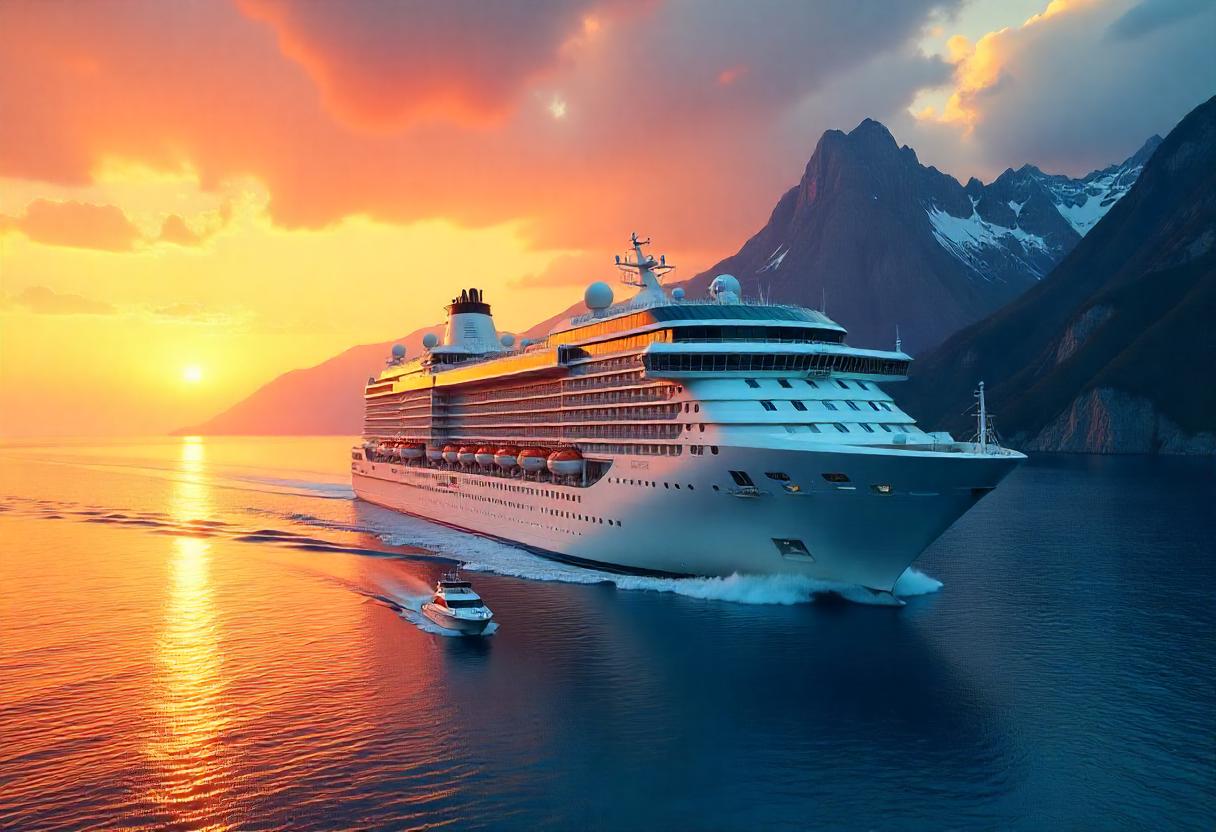≡-Greece Imposes New Cruise Tax, With Tourists Now Facing Seventeen Pound Charge At Popular Islands Like Mykonos And Santorini, In Bold Move To Combat Overtourism And Protect Local Communities – Viral of Today
<> Viral of Today <>
Home » CRUISE NEWS » Greece Imposes New Cruise Tax, With Tourists Now Facing Seventeen Pound Charge At Popular Islands Like Mykonos And Santorini, In Bold Move To Combat Overtourism And Protect Local Communities Monday, July 14, 2025As Greece battles the pressures of overtourism, a new set of charges is being introduced for cruise passengers visiting some of its most popular islands. From July 21, 2025, tourists arriving at high-traffic destinations like Mykonos and Santorini will face a seventeen-pound tax, with fees designed to help manage overcrowding and preserve local resources. This seasonal tax, varying based on the time of year, is part of Greece’s broader effort to protect its environment, support local communities, and ensure sustainable tourism practices in the face of record-breaking visitor numbers.British Tourists Face New Travel Charges as Greece Implements Cruise and Hotel Taxes to Curb Overtourism and Protect Local CommunitiesBritish travellers heading to Greece this summer are being warned to expect new charges as the country rolls out a series of tourist taxes. These measures aim to reduce pressure on overcrowded islands and fragile ecosystems while funding infrastructure improvements and sustainable tourism efforts.Greece has experienced a record-breaking tourism boom in recent years, drawing millions of visitors from the UK and beyond. In 2023, the country welcomed an astonishing 40.7 million international tourists, marking a 12.8 percent increase compared to 2022. This surge generated an estimated €21.6 billion in tourism revenue, equal to approximately £18.6 billion. However, the rapid growth in tourism has come at a cost to local residents, many of whom say they see little benefit while their communities struggle with housing shortages, rising costs, and environmental degradation.Islands like Santorini and Mykonos, famed for their whitewashed architecture, cliffside views, and sunset spots, have been particularly affected. These small destinations face immense strain during peak season as cruise ships arrive with thousands of passengers, all seeking to explore the island within a matter of hours. The sudden influx clogs narrow streets, overwhelms restaurants and shops, and exhausts local water and waste systems. Residents argue that the sheer number of daily visitors threatens their quality of life and the long-term sustainability of their communities.To address these challenges, Greece is introducing a cruise passenger tax effective from July 21, 2025. Travellers arriving on cruise ships will now be charged €20 (around £17) when docking at high-demand ports such as Mykonos and Santorini. For passengers visiting less popular ports, the fee is set at €5 (approximately £4.31). These charges will remain in place until the end of September 2025, aligning with Greece’s summer peak season.The tax will adjust based on the season. During the shoulder months of April, May, and October, the cruise tax drops to €12 (£10) for top-tier ports and €4 (£3.43) for smaller ones. In the low season—typically from November through March—passengers will pay only €4 (£3.43) at major destinations and €1 (around 86p) elsewhere.Greek authorities say the goal of these seasonal variations is to distribute tourism more evenly throughout the year. By incentivizing visits during quieter months, Greece aims to ease the burden on its most popular locations while encouraging tourists to explore other regions.In addition to the cruise tax, an accommodation tax continues to apply nationwide. This fee affects all tourists staying overnight in hotels, guesthouses, and holiday rentals. The tax is determined by the quality of accommodation, with rates ranging from €0.50 (about 43p) per night for lower-end rooms to €4 (£3.45) per night for luxury five-star hotels. For example, a couple staying in a five-star hotel for a week would pay an additional €28 (around £24.13) on their hotel bill.These hotel-related charges are typically settled at the time of booking or during check-out, depending on the accommodation provider. Though relatively small, these fees add up over the course of a holiday—especially for longer stays or multi-destination trips.Officials emphasize that revenue from these taxes will support local communities and address the infrastructure challenges that come with large-scale tourism. Funds will go toward waste management systems, water conservation efforts, transportation upgrades, and the preservation of cultural and natural sites. Investments in lesser-known areas are also expected to promote more balanced tourism across the country.Sustainability remains a key focus for Greece’s tourism policy. The government is encouraging off-season travel, promoting eco-friendly experiences, and developing guidelines to manage cruise arrivals. These steps form part of a broader strategy to avoid the pitfalls of unchecked tourism growth and protect Greece’s status as one of the world’s most sought-after destinations.For British travellers, Greece remains a firm favourite, thanks to its warm climate, historic ruins, scenic coastlines, and relaxed Mediterranean lifestyle. However, those planning holidays in 2025 should factor in the newly introduced and existing charges when budgeting their trip. Travellers are encouraged to confirm whether these taxes are included in the price of cruises and accommodations or if they’ll be collected separately on arrival.These moves align Greece with other popular European tourist hubs that are adopting similar tax measures. Cities such as Venice, Barcelona, and Amsterdam have introduced fees to control visitor numbers, ease pressure on local resources, and promote a more sustainable tourism model.As demand for travel continues to rise globally, countries like Greece are shifting their focus from sheer visitor volume to smarter, more responsible tourism. By investing in infrastructure and protecting local culture and environment, Greece hopes to offer travellers a high-quality experience while safeguarding the wellbeing of its people and destinations.Greece is introducing a seventeen-pound cruise tax for tourists visiting islands like Mykonos and Santorini, aiming to tackle overtourism, reduce overcrowding, and preserve local communities. This new charge, effective from July 2025, is part of the country’s broader sustainable tourism strategy.For those visiting in 2025, these changes mark a new chapter in Greek tourism—one where every visitor plays a role in sustaining the beauty and legacy of this iconic Mediterranean nation.
This information will surprise you!
See also
- Read until the end to discover everything.
- Important information you need to know.
- Interesting facts and helpful tips.
Conclusion
Did you enjoy the news? Keep following us daily!













